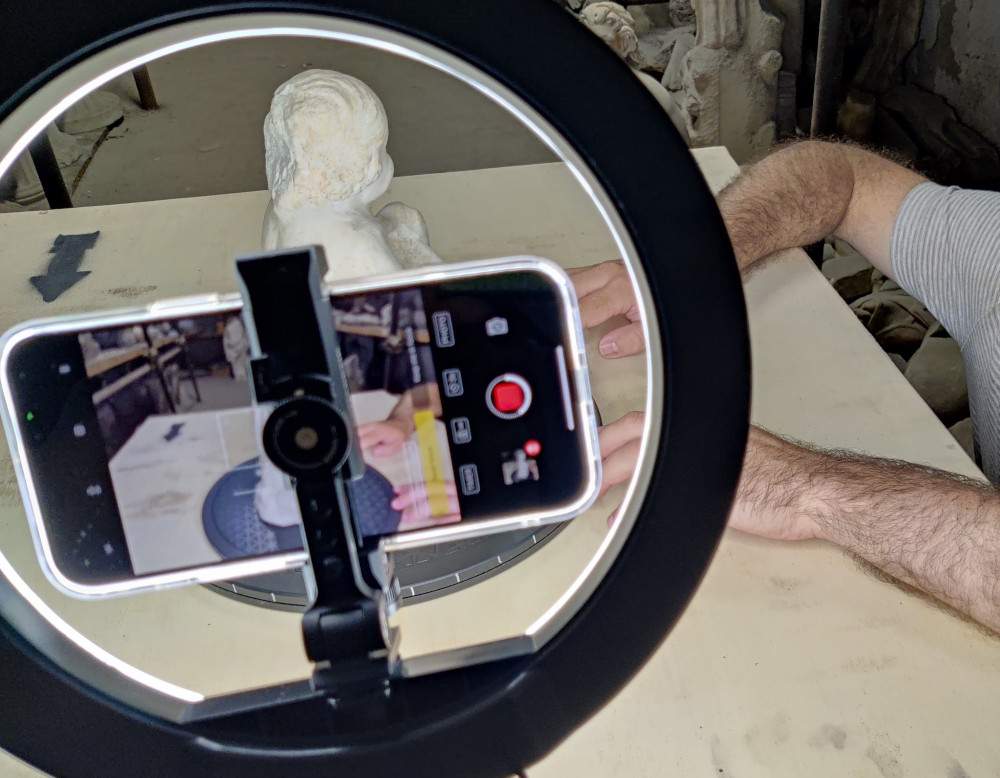Four hundred artif acts from the deposits of the MANN-National Archaeological Museum of Naples will enter its MetaMuseum, thanks to a project that, over the next five years, will unite the MANN with the Luddy School of Informatics atIndiana University. The American institution will support the main part of the financial commitment of the research, which will aim not only to digitize, but more importantly to make artifacts from the repositories immediately accessible to scholars and the public. This will be discussed on Sept. 12 (at 5 p.m., in the MANN Auditorium), in a panel discussion that will also be broadcast live on Facebook on the museum’s page and that will explain allow the planned work steps.
“The Metamuseum is a new level to be reached in the enhancement of repositories to associate contexts again, albeit in digital form. We are doing this with a new prestigious international collaboration, in the spirit of shared research with the world,” said MANN Director Paolo Giulierini. The scientific network is necessary to enhance research paths, "The Luddy School stands for far-reaching projects that merge technology with the real world, and our collaboration with one of Italy’s greatest museums. Connecting our Virtual World Heritage Laboratory with the National Archaeological Museum in Naples showcases our innovative strengths and keeps us at the forefront of international educational and research opportunities," remarked Joanna Mirecki Mullinchick, Dean of the Luddy School of Informatics. The realization of the MetaMuseum will follow well-defined steps in the study project: Cristiana Barandoni (Principal Investigator for MANN and creator of the MetaMuseum), in collaboration with Floriana Miele (Archaeology Officer and head of the MANN Catalog Office), will select the four hundred artifacts to be digitized, different in type of materials and contexts, from the repositories. Next, the complex process of 3D reproduction will begin, coordinated by Professors Bernard Frischer and Gabriele Guidi, co-directors of the Virtual World Heritage Laboratory. It will start with image acquisition of each work to generate the most complete set of views of their surface possible. From there, the generation of three-dimensional point clouds, which will represent a sampling of the surface of the artifact. The point clouds will be the premise for the production of a surface model: in short, a set of polygons that will collectively present the shape of the object. Decisive, to ensure public accessibility, is the transition to the textured surface model, which will restore the visual appearance of the artifact, stored in a digital repository.
“We make a metric model, with real digital simulacra of the original. The result is an object that not only can be intended for the lay public, but especially for scholars also to evaluate restoration hypotheses. It all comes from non-invasive work that does not contemplate physical contact with the objects,” Gabriele Guidi explains. The MetaMuseum will also have a didactic slant, because students and experts will participate in the study and image acquisition campaigns. “I am pleased that our new colleague, Gabriele Guidi, who arrived at our university in January 2022 from the Milan Polytechnic, will be able to bring his extensive experience to this project with the MANN. The MetaMuseum is innovative and will offer our students and graduate students an endless source of topics for their research,” added Bernard Frischer.
Preservation of artifacts remains key: “The MetaMuseum is a project that aims to safeguard and protect the Museum’s submerged heritage composed of invisible artifacts, that is, those that are not on display for reasons of space, study, and conservation. They are perhaps lesser-known works, but equally important for research: these testimonies, in order to survive, need to be protected. And known. Designing and implementing an innovative idea thanks to the collaboration and financial support of Indiana University is an opportunity that could not be missed,” concluded Cristiana Barandoni.
 |
| MANN kicks off its MetaMuseum: 400 artifacts from the repositories will be digitized and accessible |
Warning: the translation into English of the original Italian article was created using automatic tools. We undertake to review all articles, but we do not guarantee the total absence of inaccuracies in the translation due to the program. You can find the original by clicking on the ITA button. If you find any mistake,please contact us.